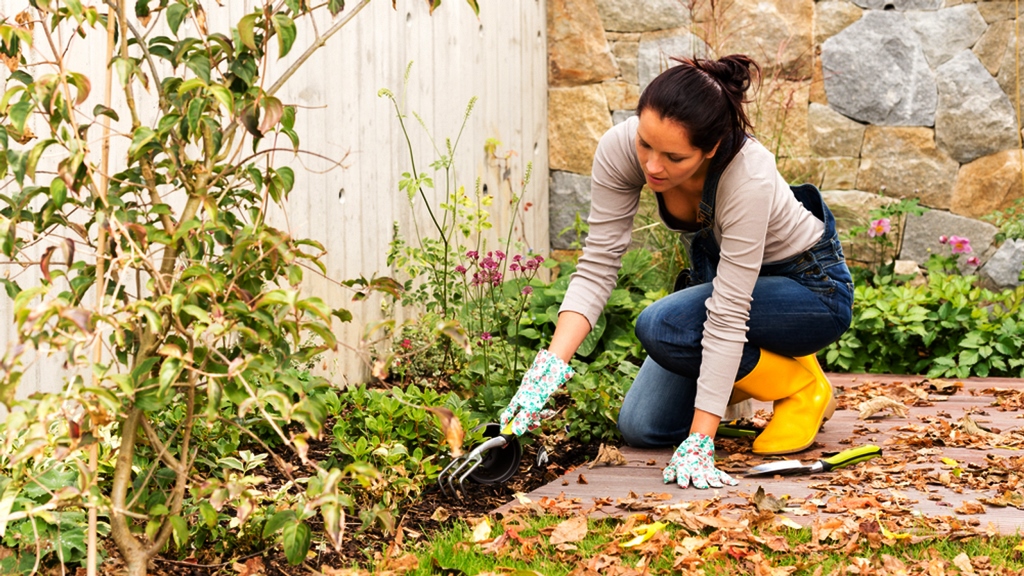Winter often comes with the inevitable slowing of activity in the garden. For gardening, winter is considered a quiet season. However, there’s still plenty of work you can do for winter gardening. The cold months of winter provide a perfect opportunity to catch up on tasks that were put off during the rest of the year. It’s a great time to start early spring crops from seed. You can also start building cloches, cold frames and ever greenhouses which will enable you to extend the harvest season. It’s certainly an ideal time to dig new beds, lay paths, and gather sticks for staking plants like beans and peas. It is also essential to prepare your garden for the winter and protect your plants from drying out in the cold. Regular watering, soil improvements, and proper nourishing are essential for plants to go through the winter season unscathed.
The quality of rainwater is unsurpassed when it comes to watering plants and landscapes. Captured rainwater is free of the salts and pollutants associated with ground and surface water. The natural temperature of rainwater doesn’t shock plants with cold the way tap water can. Hence, using rainwater tanks for winter gardening is very beneficial to plants. However, this does not mean that rainwater harvesting can prevent all your winter problems. Even for gardens sustained by water tanks, preparing for winter is as essential as other gardens. Rainwater harvesting through water tanks can certainly give you a constant supply of rainwater even in the cold months of winter. However, preparing your garden for the winter and making sure the plants don’t freeze out or dry up is your responsibility. Here are a few winter gardening tips and tricks for you to prepare your garden for the cold winter.
Reduce Watering To Once In A Day

Plants need water when they’re actively growing during warmer periods since water helps the roots absorb nutrients from the soil. As the temperature cools down, so does the growth of a plant, which means that their demands like watering and fertilizing also reduces. Water the plants once in a day and only in the mornings. Reduce watering of potted plants. They require much less water when the weather’s cooler. For wetter climates, refrain from watering your plants a little bit every day. This will only moisten the top layer of the soil without any moisture getting through to the roots. Rather water your plants less frequently but for longer periods. This is closer to natural rainfall, allowing the plants to dry out between watering. Also, take the chill off tap water by mixing in a small amount of hot water so that it is slightly tepid to the touch.
Bring Tender Plants Indoors

Not all plants can survive the freezing climates of winter. You should bring tender Plants Indoors before the first frost if you want to enjoy them again next year. Mostly tropical plants, winter hardy plants, and bulbs and tubers are the plants that all gardeners winter-over indoors. Prior to transitioning your houseplants, ensure that they will receive adequate light and ideal growing conditions. Also, inspect the plants thoroughly for signs of pests or diseases before moving them indoors. If you detect pests, treat the plants while they’re still outdoors. Wash the pests off with water and then spray the plants with pesticides. Moreover, you should slowly acclimatize your plants to lower light conditions while they’re still outdoors. Indoor plants need less fertilizer and extra humidity to thrive indoors. Once indoor, regularly water your plants and provide additional humidity by spraying two to three times a day.
Rainwater Harvesting In Winter Gardening

Rainwater is 100% soft, naturally acidic, and full of nitrates. Due to this, it is the most preferred source of water for winter gardening. Rainwater is unavailable to some parts of the earth during winter. Hence, it is advisable to harvest as much rainwater as possible to sustain your gardens even in winter. Rainwater harvesting is the simple act of collecting the rainwater that runs off the roof and tiles on your home for beneficial use. It means you can catch and store the water in barrels or tanks for later use. If used in the garden, stored rainwater will also hydrate soils and recharge groundwater. There are many ways to collect and recycle rainwater including barrels and water tanks. There are also some ways to ready for winter a garden sustained by water tanks. The important thing is to protect your tanks from freezing or getting damaged in winter.
Don’t Wet Plant Foliage If Possible

It may sound contradictory, but indoor plants need less water during winter. Plants experience a slow rate of growth in winter. Hence, despite the drier air, their need for hydration is also less. So, over-hydrating them at such a time may lead to root rot. Also, it is advisable to avoid wetting the plant foliage if possible. Wet foliage leads to more water on the surface of the soil. This leads to mulch which prevents the plants from getting essential nutrients from the soil. Hence, instead of water from a can, try spraying less water on to the leaves. However, you need not wait for the leaves to drop or start to dry before giving them a drink. Just poke your finger into the soil and check to see if it is dry an inch or 2 below the surface. If yes, then it’s time to water the plants.
Weed Control In Winter Gardening

The occasional warm winter day offers a perfect opportunity for weed control. The ideal time for weed removal is early winter before small seeds are spread by tilling, snow, pets and wind. Winter weeds include chickweed, bittercress, henbit, and deadnettle, as well as perennial weeds, such as clover, dandelion and wild violets. You can also discourage annual weeds by keeping your ground well covered during the winter months. Maintaining a thick lawn and mulching your bare garden areas is a simple and effective trick that prevents winter annual weeds from germinating. There are plenty of weed control methods available in the market. You can choose one depending upon your location, the weeds in question and your climate. However, hand weeding is always a great option to remove the weeds from their roots.
Winter Pruning For Some Plants

Winter is the best time to prune most plants, especially the deciduous ones. Pruning in winter encourages flowers and fruit, can encourage a good shape, promotes strong growth and helps to stop disease taking hold. Many garden plants benefit from pruning, but it’s important to prune at the right time of year, in the right way. Many plants need pruning in the winter months, while they’re dormant. It is much easier to prune a plant without its leaves since you can easily see its branching structure. Also, in winter there is less chance of transmitting diseases from one plant to another or attracting insects to fresh pruning wounds. Winter pruning leaves the plants with extra root and energy reserves to quickly heal wounds and support vigorous spring growth. Thinning and heading back are two basic techniques that are used when pruning most woody plants. We prepared for you a useful article tells us how you may mow your lawn more effectively before the winter season starts. You may read about that on backyardstyle.com
Care For Soil In Winter Gardening

In winter when the temperature drops, all the activity in the garden slows down. It is said that soil and all its life forms hibernate through winter. While on the surface everything seems to have stopped, there’s still a lot happening beneath the surface. Hence, this is the perfect time to replenish and recharge your soil with nutrients and minerals. In fall it is better to mulch over vacant beds without cultivating them first unless you are digging out nasty perennial weeds. Mulch does a great job of protecting the soil from the ravages of winter. You can also grow winter-cover crops to protect the soil from erosion through winter. You can also heap up your garden beds with compost and cover them with an old blanket or cover tunnel. The garden bed benefits from a deep layer of compost at the surface, further enhanced by a cloth cover.


















